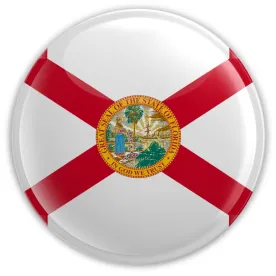On January 1, 2020, the new Florida Business Corporation Act took effect. It includes a provision that settles in the affirmative whether Florida is a “demand futility” state for shareholder derivative litigation. To succeed under this new rule, the shareholder must adequately demonstrate the reason or reasons “it did not make the effort to obtain the desired action from the board of directors or comparable authority.” Fla. Stat. § 607.0742 (2020). This article reviews the prior regime, explains the new statutory language, and evaluates how Florida courts may assess allegations of futility. It then concludes with a brief discussion about what this all means for shareholder derivative litigation going forward for Florida corporations.
The Prior Regime
Under the immediately preceding statutory regime, there was a general consensus that Florida law required presuit demand and a 90-day waiting period before a shareholder could commence derivative litigation. That is, absent express rejection by the board or risk of irreparable injury, a shareholder plaintiff had to wait 90 days from its first demand to the board before bringing its lawsuit in the company’s name. The most recent iteration of the statute read as follows:
A complaint in a proceeding brought in the right of a corporation must be verified and allege with particularity the demand made to obtain action by the board of directors and that the demand was refused or ignored by the board of directors for a period of at least 90 days from the first demand unless, prior to the expiration of the 90 days, the person was notified in writing that the corporation rejected the demand, or unless irreparable injury to the corporation would result by waiting for the expiration of the 90-day period. If the corporation commences an investigation of the charges made in the demand or complaint, the court may stay any proceeding until the investigation is completed.
Fla. Stat. § 607.07401(2) (2019) (emphasis added).
It is worth noting that despite the statute’s apparent clarity, some Florida courts had held there to be a futility exception, based on some older cases relying on an earlier version of that statute. See, e.g., Etan Mark & Steven D. Weber, Resistance Is Futile: The Myth of Demand Futility, 88 Fla. B. J. 10 (May 2014) (citing cases and explaining the “disconnect between Florida courts and the Florida statute as to whether there [was] a futility exception to any demand requirement”).
The New Language
The Florida Business Corporation Act clarifies whatever ambiguity there was by repealing the Florida statutory section cited above and replacing it with an adjacent section that allows a shareholder to pursue a derivative action provided the complaint alleges “with particularity” the “reason or reasons the shareholder did not make the effort to obtain the desired action from the board of directors or comparable authority.” Fla. Stat. § 607.0742 (2020). The new statutory language reads as follows:
A complaint in a proceeding brought in the right of a corporation must be verified and allege with particularity:
-
The demand, if any, made to obtain the action desired by the shareholder from the board of directors; and
-
Either:
-
(a) If such a demand was made, that the demand was refused, rejected, or ignored by the board of directors prior to the expiration of 90 days from the date the demand was made;
-
(b) If such a demand was made, why irreparable injury to the corporation or misapplication or waste of corporate assets causing material injury to the corporation would result by waiting for the expiration of a 90-day period from the date the demand was made; or
-
(c) The reason or reasons the shareholder did not make the effort to obtain the desired action from the board of directors or comparable authority.
Fla. Stat. § 607.0742 (emphasis added). The staff analysis of the proposed bill explained this change in express terms of demand futility, namely, that the change would “[a]llow a shareholder to initiate a derivative action without waiting 90 days for the corporation to respond to his or demand, if the shareholder is able to prove that such a demand is futile.” Staff of Fla. H.R. Comm. on Judiciary, CS/CS/HB 1009 (2020) Staff Analysis 9 (Apr. 18, 2019).
Evaluating Allegations of Demand Futility in Florida
Given that demand futility is now accepted under Florida law, the next question is how Florida courts will weigh motions to dismiss challenging “particularized” allegations of demand futility. While “demand futility” is a legal term of art that varies by jurisdiction, Delaware law offers insight. The Delaware Supreme Court has stated:
-
Our view is that in determining demand futility the Court of Chancery in the proper exercise of its discretion must decide whether, under the particularized facts alleged, a reasonable doubt is created that: (1) the directors are disinterested and independent and (2) the challenged transaction was otherwise the product of a valid exercise of business judgment. Hence, the Court of Chancery must make two inquiries, one into the independence and disinterestedness of the directors and the other into the substantive nature of the challenged transaction and the board's approval thereof.
Aronson v. Lewis, 473 A.2d 805, 814 (Del. 1984). The Aronson standard is not an insignificant hurdle for a plaintiff, which is appropriate, as such a lawsuit reflects a shareholder’s attempt to wrest from the company control over important corporate decisions — whether the company should bring a lawsuit, typically against a current or former officer or director, and, if so, how to prosecute that action.
Notably, the Florida Business Corporation Act’s new language allowing demand-futility pleading is substantially consistent, but not word for word, with the Delaware Court of Chancery’s Rule 23.1, which states that the “complaint shall also allege with particularity the efforts, if any, made by the plaintiff to obtain the action the plaintiff desires from the directors or comparable authority and the reasons for the plaintiff's failure to obtain the action or for not making the effort” (emphasis added).
It may be expected that Florida courts will follow the Aronson scheme for two reasons. First, Florida courts often refer to Delaware law as persuasive authority when Florida does not have law on the subject. See Int’l Ins. Co. v. Johns, 874 F.2d 1447, 1459 n.22 (11th Cir. 1989) (noting that Florida courts have relied on Delaware law to establish their own corporate law doctrines); Griffith v. Quality Distribution, Inc., No. 2D17-3160, 2018 WL 3403537, at *6 (Fla. 2d DCA July 13, 2018) (adopting the “well-reasoned” standard set forth in Delaware’s Trulia decision for evaluating so-called disclosure settlements of a class action merger lawsuit).
Second, the Aronson test has been well developed over 35 years and provides relatively clear rules of decision where it applies. As an example, Florida federal courts have long applied Aronson with comfort when Delaware law applies. See, e.g., McDowell v. Bracken, No. 18-12762, 2019 WL 6998638, at *6 (11th Cir. Dec. 20, 2019) (applying Aronson and Delaware law to affirm a motion to dismiss for the corporation: “To excuse his failure to make a demand on the Board before filing suit, McDowell was required to show that demand was futile. He has failed to do so.”).
There may be complications, though, to applying Delaware’s doctrine in its entirety. A court’s review of a motion to dismiss that attacks a shareholder’s allegations of demand futility often turns on the court’s assessment of director independence. That is, the shareholder must allege with particularity that these directors cannot be trusted to adjudge fairly whether bringing the subject lawsuit (or taking the other corporate action demanded) is in the corporation’s best interest because of conflicts or other infirmity of independence. But Florida’s recent amendments to the Florida Business Corporation Act made several changes to the concepts of director independence, in ways that are not entirely in lockstep with Delaware. For example, the act itself incorporates substantially revised language as to “director conflicts of interest,” Fla. Stat. § 607.0832 (2020), and introduces the term of “qualified director,” Fla. Stat. § 607.0143 (2020), that are both new to Florida and not word for word with Delaware. Florida courts have not yet developed these new concepts, and their resolution will likely be more important to the substantive outcome of futility litigation than will whether Florida follows the Aronson framework.
Practical Considerations for Florida Corporations
Looking ahead, Florida corporations and their boards must consider how the formal introduction of demand futility to the Florida Business Corporation Act might increase the filing of shareholder derivative litigation. As an initial matter, a Florida corporation would be wise to review its director independence, particularly if it is planning significant corporate events, such as a merger, or if it is a public company and has particularly active shareholders.
A Florida corporation, particularly a public company, should also discuss with its in-house and outside counsel its plan for derivative demands to move more quickly to court or for demands to head to court in the first instance. Florida corporations had previously been given, in most cases, 90 days’ warning before any lawsuit was filed in court and, often, an opportunity to work with the shareholder’s counsel before the matter was made public. In that time, the board could investigate the demand, set up a special committee to review the demand if warranted, and otherwise confer with the shareholder or the shareholder’s attorney on options short of litigation. Building demand futility into the statute means that many putative plaintiffs will skip this initial outreach to the board, eliminating entirely the opportunity for the company’s presuit shareholder engagement and shifting what was boardroom dialogue to an immediate courtroom fight.
Consequently, corporations should review their policies and procedures around receipt and response to shareholder demands on the board, and work with their inside and outside counsel to prepare for immediate litigation, particularly after corporate action that may spur derivative litigation. Such high-risk events that can prompt derivative litigation include the filing of securities fraud litigation, announcing a government investigation, reporting the abrupt departure of an executive, corporate governance changes, and out-of-the-ordinary compensation disclosures.
The addition of demand futility to the Florida Business Corporation Act is a significant change to how companies and shareholders will move forward with shareholder demands and will require careful thought for boards of Florida companies and for those who advise them.




 />i
/>i
